| 2004 |

|
YEAR BOOK |
University College Dublin
|
Vets in Science
|
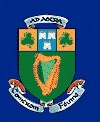
|

|
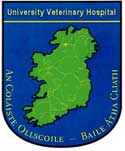
|
Members of the public may be familiar with UCD�s University Veterinary Hospital � an integral part of the Faculty of Veterinary Medicine. At the hospital, animals ranging from exotic pets, dogs and cats to farm animals and horses, many of them referred from veterinary practices, receive cutting-edge veterinary care and attention. The impressive display of thank-you cards in the hospital reception area is a testament to the regard in which the hospital is held. The training provided in the Faculty for our students is essential in the formation of veterinary practitioners who go on to provide services to the farming community, pet owners, and others in the control and treatment of animal diseases.
As the only school of Veterinary Medicine on the island of Ireland, we need to ensure the best possible training for our graduates, the best possible animal care for our clients, and the best possible public health safeguards. The key to achieving these objectives is the scientific research undertaken in the Faculty. So, if you arrive with an animal for treatment at our hospital, please take a moment to remember the teams of scientists and graduate students who are working to ensure advances in the management of animal health and welfare.
A. vasorum:
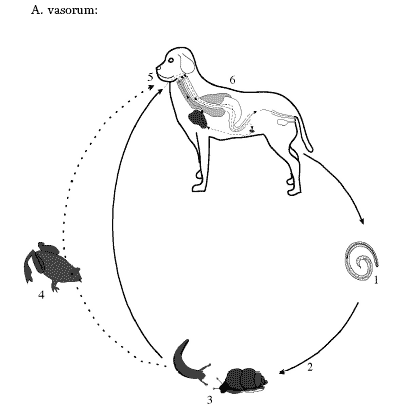
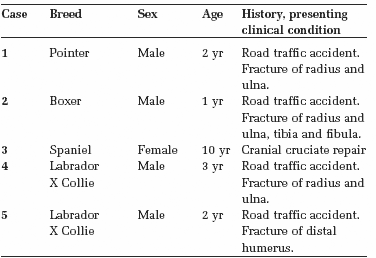
Not Running to Stand Still
There was a time when undergraduate students were expected principally to be efficient recipients for the wealth of knowledge available from their academic mentors and from textbooks. In our modern, knowledge-based economy, this approach, thankfully, has had its day, and there is an increasing emphasis on students finding out for themselves � in other words, a blurring of the borders between research and teaching. In the Veterinary Faculty, this is reflected in developments such as problem and case-base learning, and in a �lecture-free� final year course in which students are active, hands-on participants in the real life of the hospitals and laboratories. As part of this approach, we also recognise the valuable role all of our students, undergraduate as well as postgraduate, have to play in shaping the scientific developments of tomorrow. Vet students are encouraged to participate in research during their undergraduate course, and can gain credits towards their degree requirements for doing so. Everyone benefits � the students who often get overseas experience as well as the hands-on opportunities � and the host research team, which gets a fresh, enthusiastic viewpoint.
Some Student Vet Researchers
Barbara Gallagher , currently a final year student, spent the Summer of 2003 investigating and compiling statistics on the link between cruelty to animals and domestic violence. This work, was carried out in association with the UCD Departments of Social Policy and Social Work/Small Animal Clinical Studies. The results of the study support the contention that there is a higher incidence of animal abuse in households where there is domestic violence. Veterinary practitioners, as a consequence, have a role to play in highlighting possible cases.
Philip Jull � a Second Year student � spent the summer of 2004 in Thailand at Mahidol University. While there, he worked with a team investigating the presence of a potential reservoir of SARS in wildlife. Meanwhile Kieran Corry, a final year student, participated in a Health and Risk Assessment for Dolphins project in Florida.
Andrew Morrison , just qualified as a veterinarian, undertook a survey of parasites in Irish Badgers, and their potential to affect the health of their hosts, and this year Louise Henry (4th Year) and Carol Vardaro (3rd Year) will investigate novel aspects of parasitic infections in deer and sheep, respectively.
Niamh Ryan , 4th Year, is travelling to Newmarket to work with a team investigating cardiac arrhythmias in exercising horses, while Alyssa Cox and David Byrne, both 2nd year students, are studying intestinal repair processes, and the disease of laminitis, respectively, in horses.
Many of our student researchers, including those listed, are sponsored by outside bodies, to which we are very grateful. Instead of running to keep up with today, these students are sprinting towards tomorrow. So next time you visit your vet � ask if the professional service you receive has been influenced by this active approach to education and scientific development.
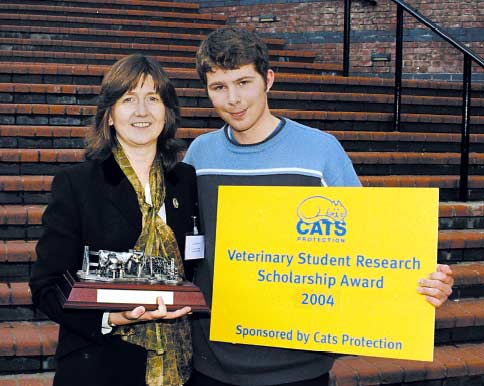
Contact: Dr. Grace Mulcahy, Associate Dean for Research, Faculty of Veterinary Medicine, UCD, Belfield, Dublin 4;
E-mail: [email protected]